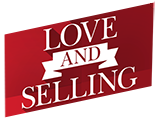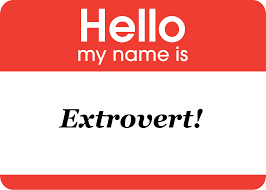When I started hiring and training salespeople twenty years ago, the profile was salespeople with “drive,” “closers.” “Go-getters” who are “aggressive.”
Then the psychologists got involved and replaced those dinosaur words with more evolved, academic terms like extroversion, ego drive, and perseverance. I have just worked with a client whose hiring profile included these very terms, and it happens consistently: sales organizations continue to lean toward the traditional extroverted sales profile.
The problem, as I see it: Many top-down hiring practices today involve executive involvement or sign-off on new sales hires (particularly in companies who boast of hiring “rigor”). Such senior leaders, by definition, enjoy both more tenure (read: “old school”) and more distance from today’s selling reality (read: “out of touch”). Often, this final say in hiring actually represents the old-school bias toward the extroverted closer.
No doubt, some of these traditional sales qualities are useful some of the time. There are moments when a little extroversion can help overcome call reluctance, for instance. But it’s a mistake to assume these qualities are necessary for success in selling. In fact, the overuse of these competencies is what gives selling a bad name.
Many sellers embody the worst traits of the traditional, extroverted “closer.” They’re hyper-focused on closing the deal. Their sole concern is their own deadline—they “gotta know right now.” They’re ultra-persistent—no amount of objections will deter them from the goal. They use smooth words and conversational manipulation to close. And in many cases, these qualities lead to deals that should never have been closed in the first place.
And that’s the risk of having a sales force full of traditional sales types—deals get closed, but they’re not all good ones. Deadlines get met, but at what costs? Agendas get pushed, but customers get pushed away. Salespeople, or sales forces, without balance tend to produce unintended consequences that hamper long-term results.
Unfortunately, sellers with a high degree of extroversion, ego drive, and go-getter-ness often lack a sufficient degree of characteristics that are key to the high-level, consultative sale. In my experience as a coach for, consultant to, and leader of sales teams, these characteristics are underrated compared to the extroverted-closer traits.
The first underrated trait is empathy. For now, think of it as the ability to identify with another. Are you picking up what they’re putting down? Are you smelling what they’re stepping in? Are you taking another’s perspective?
A high degree of extroversion is also often accompanied by a lack of deliberation—thoughtful consideration before acting based on reflection and forethought. It’s the rare ABC salesperson who also possesses high degrees of deliberation. But deliberation is often highly necessary in a complex environment.
Finally, the action orientation of the hard-driving, aggressive closer often comes at the expense of thoughtfulness and sensitivity. Yes, salespeople need to be confident enough to ask for the business . . . and thoughtful and sensitive enough to know when it’s not time or when closing could be considered premature or pushy.
Let’s look at this through the Lens of Love. Do you want a partner who knows what they want, is not afraid to ask for it, and is willing to go for it? Of course you do. (Or maybe you don’t—after all, this is love.) But if that person is also inconsiderate, thoughtless, and insensitive, you will have a fun time on the date but an ultimately cold and empty relationship.
Viva the Ambivert!
In the book Quiet, Susan Cain examines how the qualities of the introvert are actually an advantage in more complex, extended sales cycles.
The yang to the extrovert’s yin is the introvert. These folks get their energy from solitude and intimacy and tend to have to work at being in crowds, meeting new people, and dealing with noise. In other words, they have to work at being salespeople. If a day of meetings and presentations leaves you cooked and in need of alone time, you may possess elements of the introvert.
So what makes introverts uniquely qualified to succeed in higher-level sales?
Things like listening deeply and not just waiting until it’s their turn to talk; responding to a customer’s statement with deeper questions and not just opinions; patiently processing and not rushing to judgment or jumping to conclusions; relating to introvert customers with a pace, tone, and volume that create comfort.
The more complex the sales environment, the more these competencies matter and the more they differentiate successful consultants from their grabby vendor counterparts.
For example, a few years back, I was conducting a selling workshop for a client, and I had what I thought was a stowaway. This guy was not anyone’s traditional description of a successful salesperson—soft handshake, not a ton of eye contact, and didn’t say a peep in the workshop or contribute much to the small-group discussions. He did, however, approach me at the break and ask for clarification on a couple of points. Perhaps he’s new, I thought.
When I asked the VP of sales if perhaps this guy was a service tech or a rookie, he laughed out loud (he LOLed, kids). “Jerry is our best salesperson by a huge margin,” he snorted. “He’s been our top performer in each of the last five years.”
That opened my eyes—I spent the rest of the workshop surreptitiously observing this quiet sales Superman. On closer review, he turned out to be an ambivert—someone who combines elements of both the introvert and the extrovert and is able to flex and balance their behaviors based on the needs of the situation.
So don’t get hung up on whether you’re aggressive or outgoing enough—there is room for every kind of style in selling. I’d be more worried about the opposite—are you so much of a driver and go-getter that you’re freaking people out?
Suck Less at Selling:
If you’re an extrovert, be conscious of how your style plays with more introverted customers and temper your exuberant, voluble self accordingly.
Celebrate and cultivate the qualities of the introvert.
Seek and value balance and diversity on the sales team—a combination of different styles can result in a sort of collective ambiversion. (It’s a word.)

